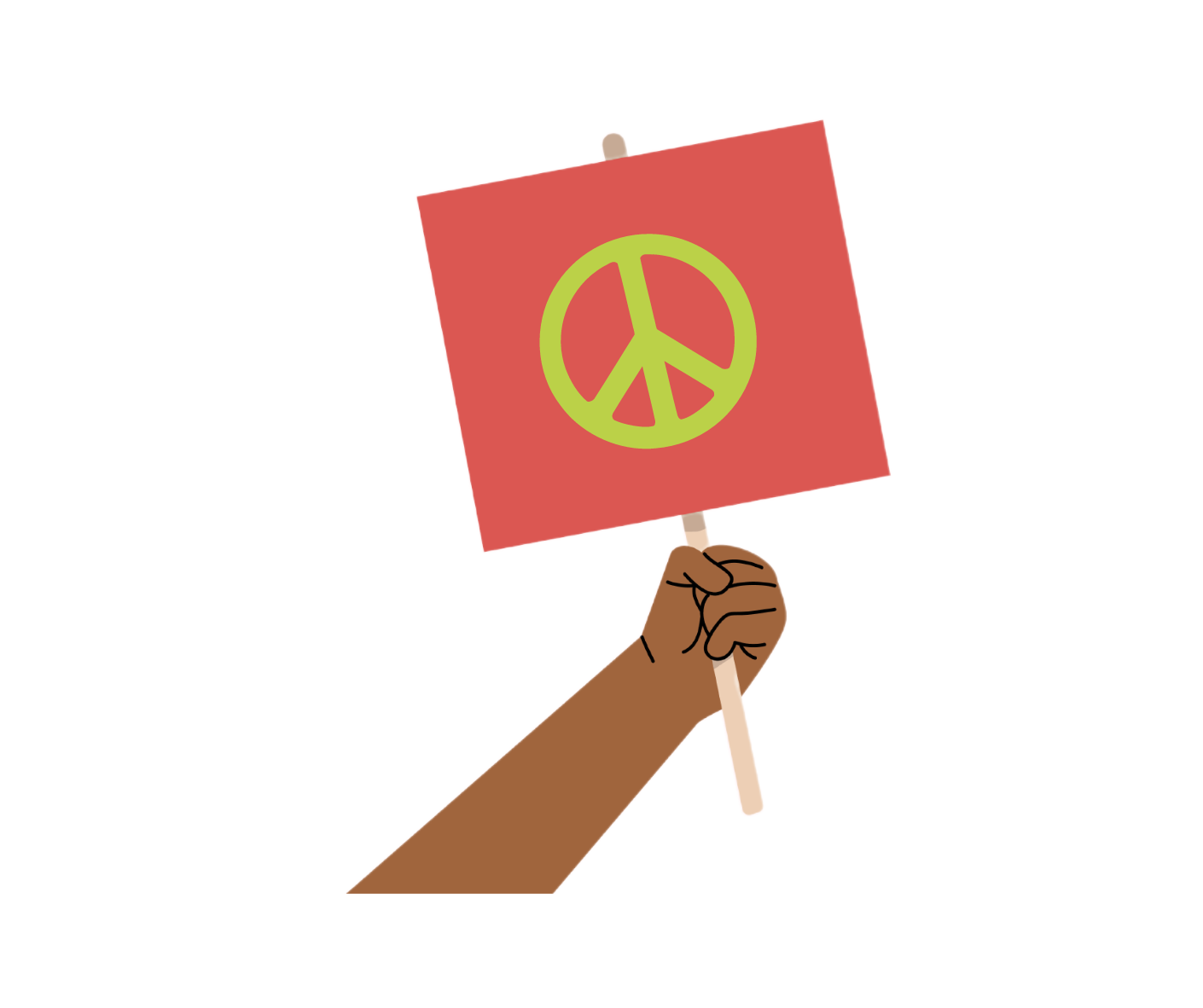Resources of Network Members and Supporters
The Peacemakers Network has over 84 members based in 34 countries around the world. Network members seek to support new ways of strengthening the positive engagement of religious and traditional peacemakers in peace and peacebuilding processes. The Network supports collaborative work and engagement. Working collaboratively is more than just the intersection of common goals – it involves engaged, collective determination to reach shared objectives of collaboratively supporting the positive role of religious and traditional actors. Click here to learn more.
Resources of the Peacemakers Network

Strategy of the Network for Religious and Traditional Peacemakers
The Network for Religious and Traditional Peacemakers has launched its strategy for 2020-2025. The strategy addresses all elements of the Network’s activities, including its structure, mission, approach, priorities, areas of concentration, and guiding principles. The strategy also reaffirms the Network’s purpose: to assist religious and traditional peacemakers to forge mutually supportive connections between them and others who have responsibility for building peace, and preventing and ending conflicts.
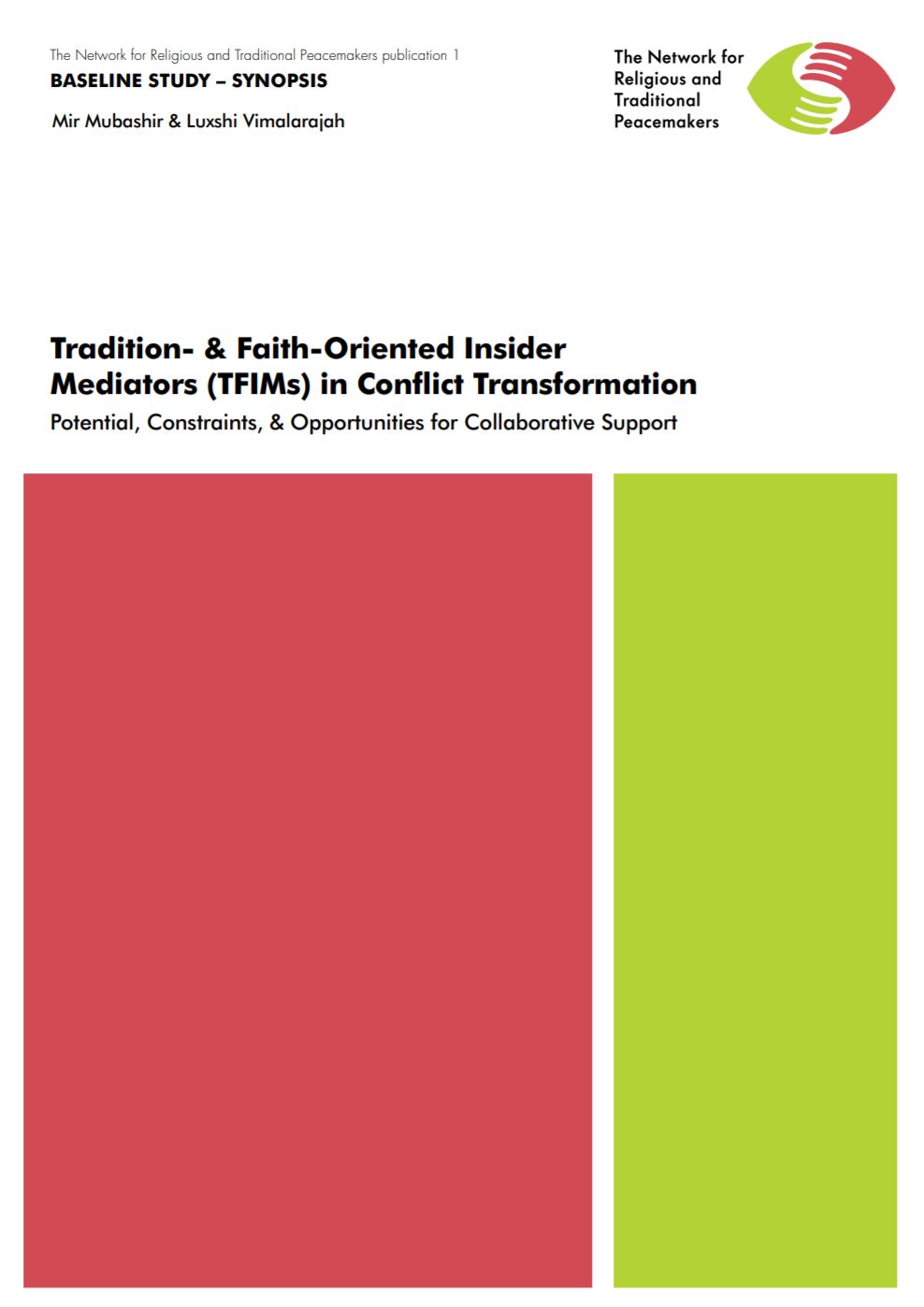
Tradition- and Faith-Oriented Insider Mediators (TFIM) in Conflict Transformation
On the basis of empirical knowledge acquired through case studies in Myanmar (Burma), Southern Thailand, Lebanon, Colombia, Kenya, and Mali, this study conceptualizes and contextualizes a specific set of religious and traditional peacemakers as tradition- & faith-oriented insider mediators (TFIMs). In considering their peace mediation roles, potential, and the constraints under which they work, it also reflects on the opportunities for collaborative support linking various actors within conflict contexts.
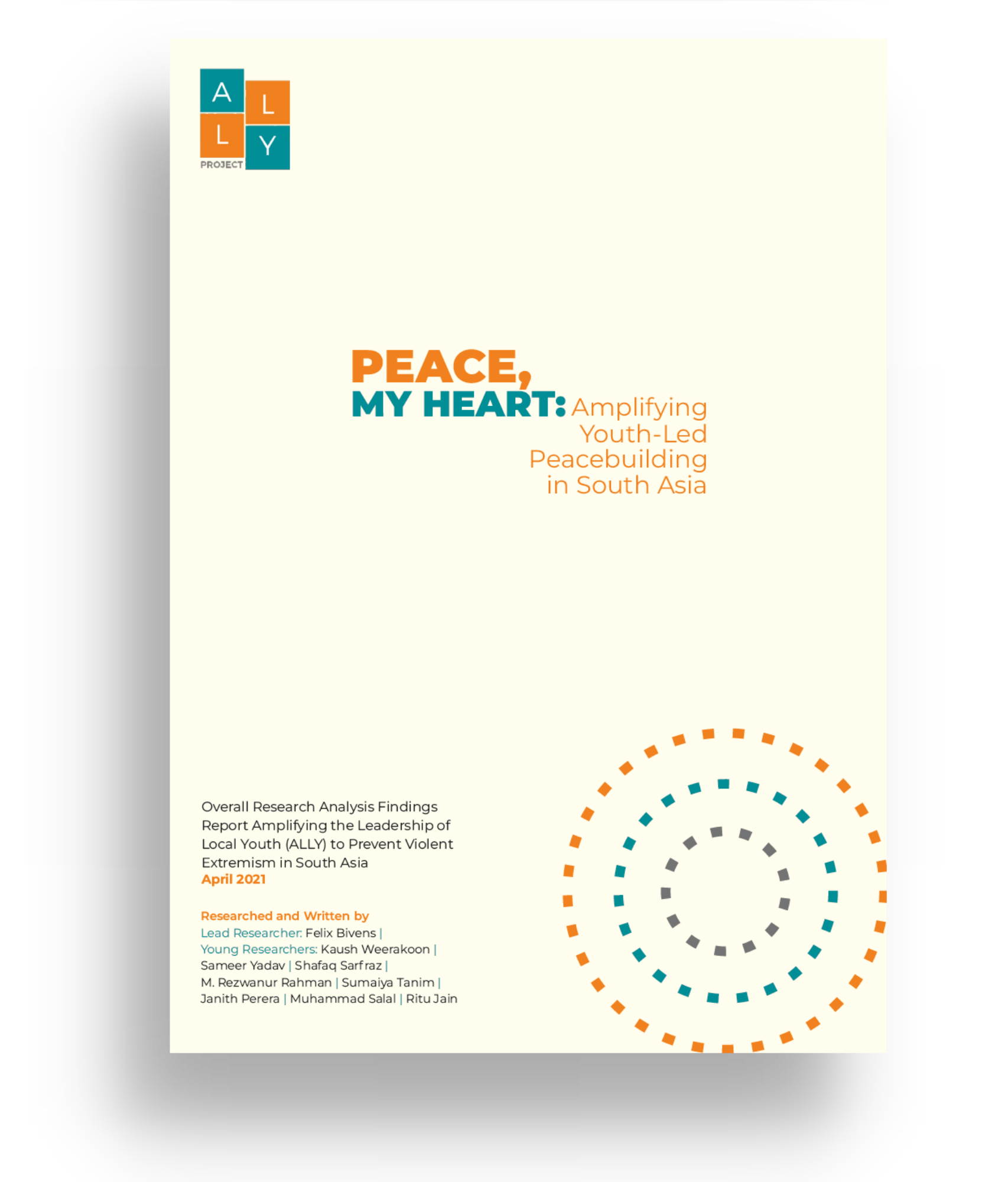
Peace, My Heart: Amplifying Youth-Led Peacebuilding in South Asia
Research analysis findings report of the European Union Funded “Amplifying the Leadership of Local Youth (ALLY) to Prevent Violent Extremism in South Asia.
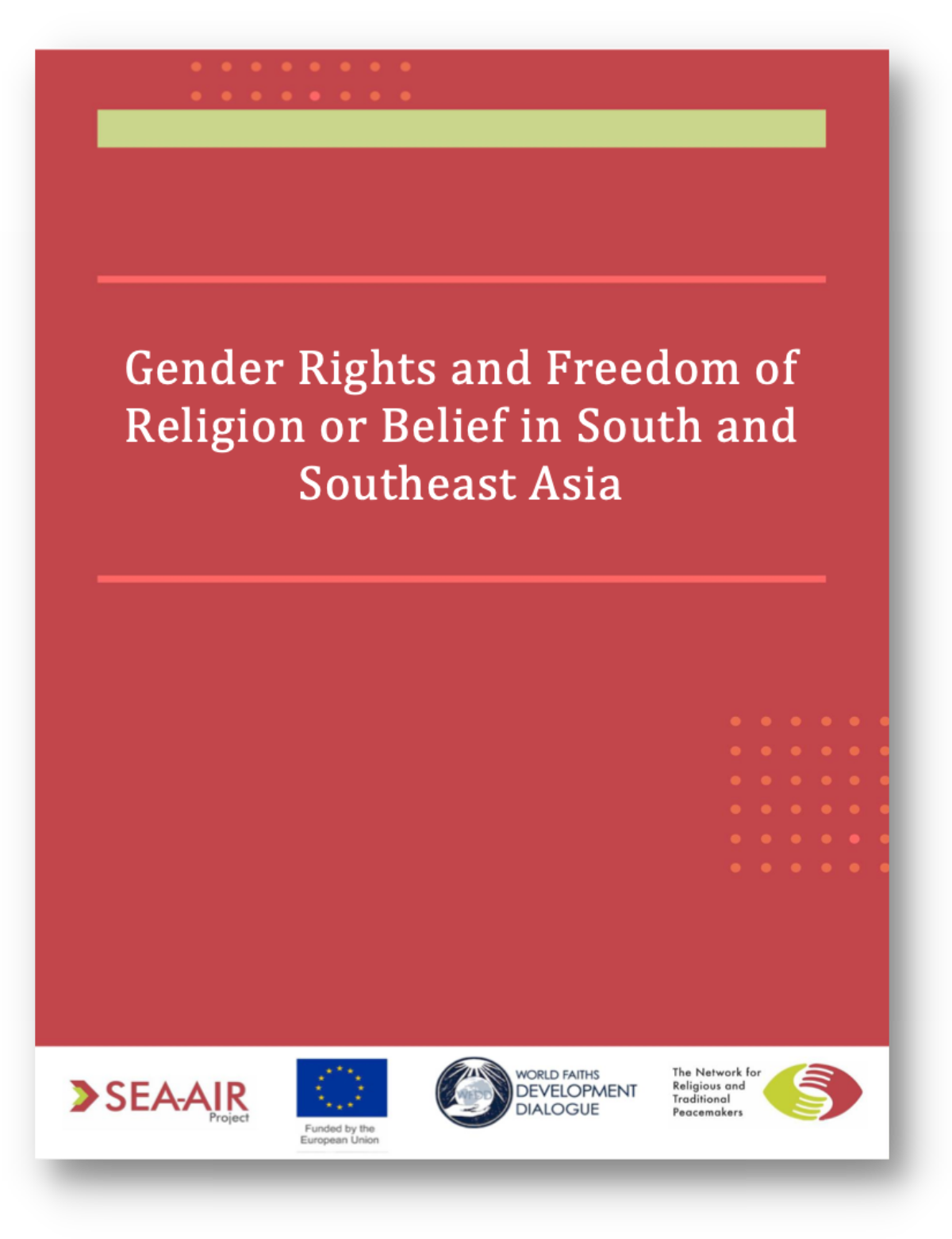
Gender Rights and Freedom of Religion or Belief in South and Southeast Asia
The “Gender Rights and Freedom of Religion or Belief in South and Southeast Asia” is one of four policy briefs produced as a part of the European Union-funded Southeast Asia: Advancing Inter-Religious dialogue and Freedom of Religion or Belief (SEA-AIR) project.
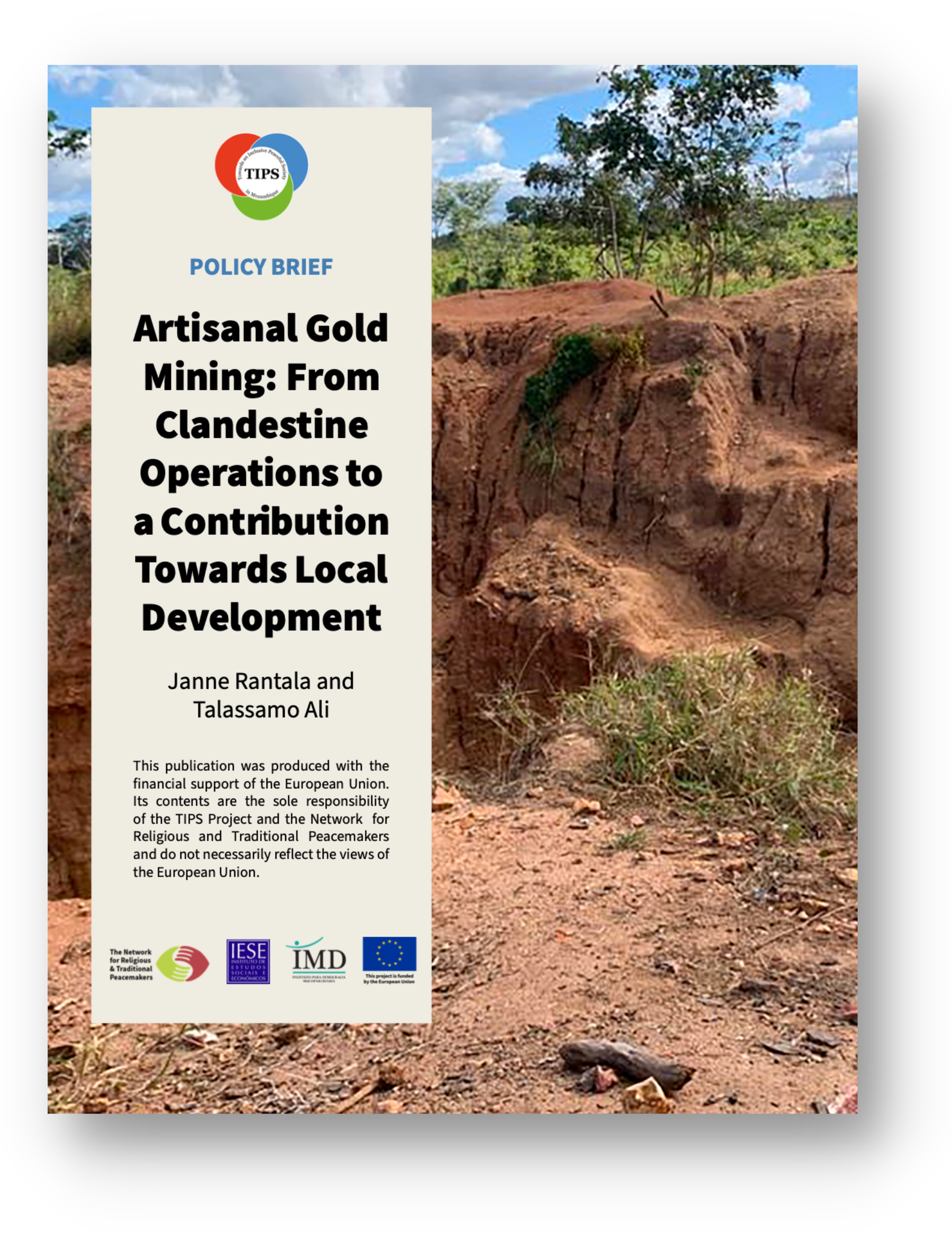
Artisanal Gold Mining: From Clandestine Operations to a Contribution Towards Local Development
Developed under the European Union -Funded “Towards Peaceful and Inclusive Societies in Mozambique” project specifically focuses on gold mining and its socio-economic impacts in Mozambique, and is part of a set of five briefs produced under the findings of a research on the root causes of natural resource conflicts in the provinces of Inhambane, Sofala, Tete, Niassa, and Cabo Delgado.
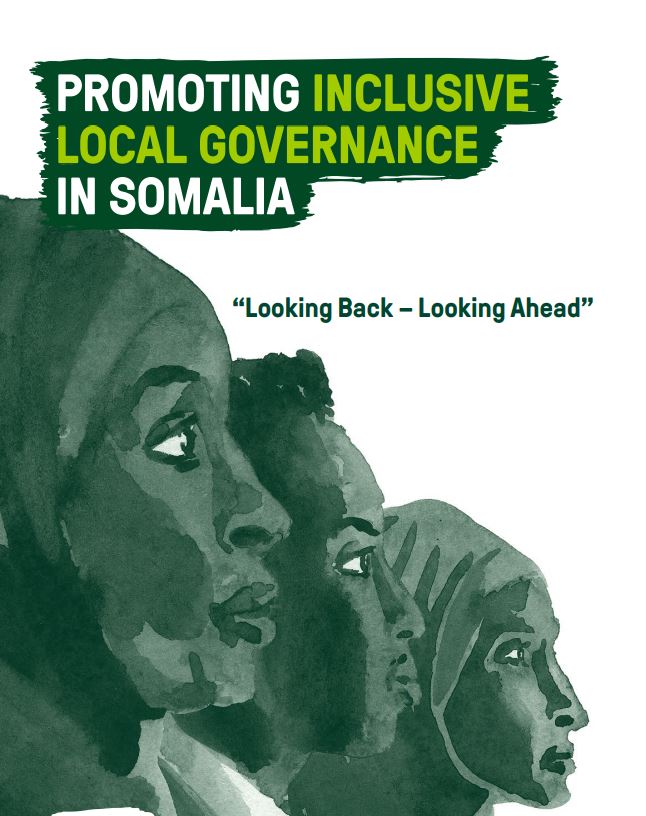
Promoting Inclusive Local Governance in Somalia
Led by Finn Church Aid Somalia, this publication brings together existing knowledge and current insights on promoting inclusive local governance in Somalia, covering the District Council formation process, community participation, and the inclusion of women, youth, and marginalized groups. The publication includes a description of the context and background of the program, its results, successes, and lessons learned, and best practices of over a decade of work on local governance. Finally, it explores dreams and visions for the future of Somalia’s local governance and presents a set of recommendations for a way forward.
The Networks Role to Advancing Inclusivity
Four Inclusivity Briefs highlight how Network Members and Supporters are advancing and mainstreaming inclusivity based on the Network’s four modalities of advancing its work: 1) networking 2) research 3) advocacy and 4) capacity-building. Click the links below to learn more.
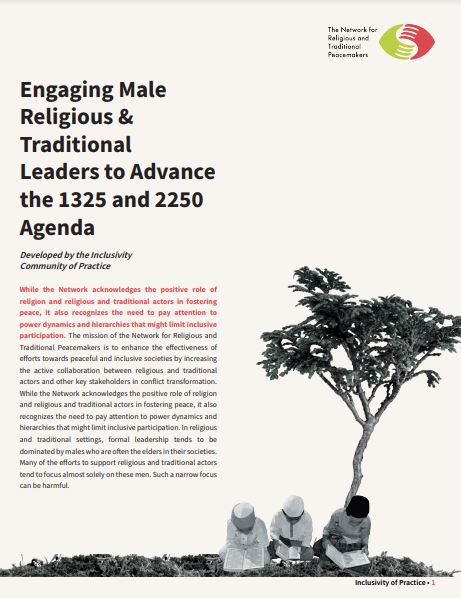
Engaging Male Religious & Traditional Leaders to Advance the 1325 and 2250 Agenda
While the Network acknowledges the positive role of religion and religious and traditional actors in fostering peace, it also recognizes the need to pay attention to
power dynamics and hierarchies that might limit inclusive participation. The mission of the Network for Religious and Traditional Peacemakers is to enhance the effectiveness of efforts towards peaceful and inclusive societies by increasing the active collaboration between religious and traditional actors and other key stakeholders in conflict transformation, including the advancement of international frameworks.

The Networks Engagement with Traditional Actors for Sustainable Peace
Traditional actors refers to traditional local leaders and community members such as indigenous, ethnic, tribal or clan elders or community members, including women and youth. Historically, traditional actors have played a vital role in conflict affected societies and situations of transition due to their established governance systems, along with their built in conflict prevention, management, and dispute resolution mechanisms.
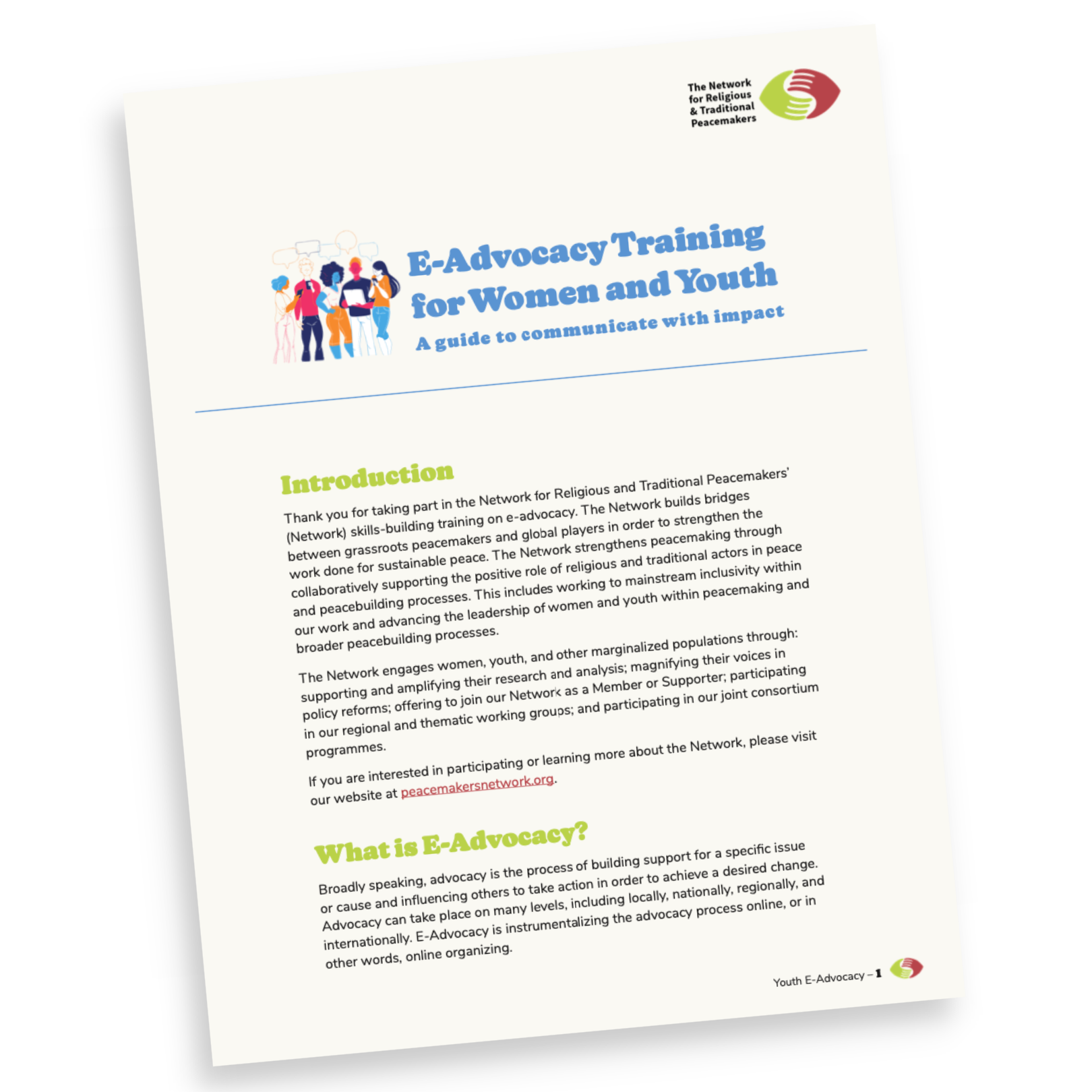
E-Advocacy Training for Women and Youth
Broadly speaking, advocacy is the process of building support for a specific issue
or cause and influencing others to take action in order to achieve a desired change.
Advocacy can take place on many levels, including locally, nationally, regionally, and
internationally. E-Advocacy is instrumentalizing the advocacy process online, or in
other words, online organizing.
Resources of Network Members
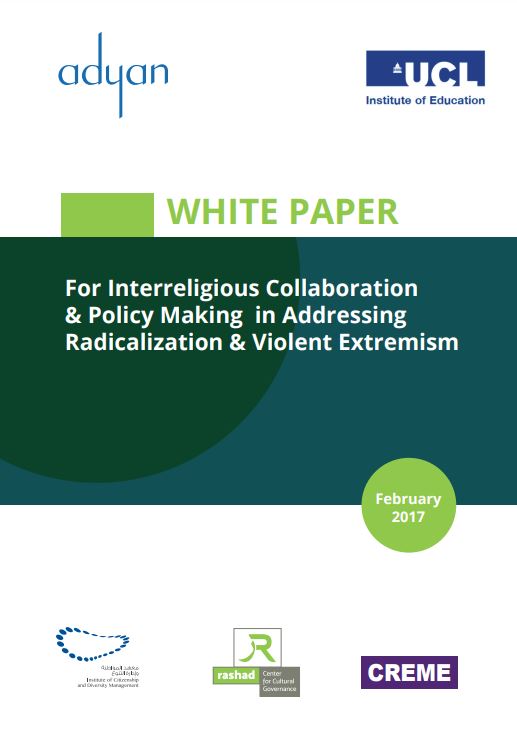
White Paper for Interreligious Collaboration and Policymaking in Addressing Radicalization and Violent Extremism
An inter-religious or multi-religious approach to PVE can ensure greater effectiveness in countering extremism because it removes stigma or blame, and facilitates a more open, beneficial discussion about the issues faced. Such a collaborative, integrative approach is also a deliberate counter to the extremist agenda of discrimination, isolation, destruction, and hate. This white paper aims to encourage and generate discussions needed for policies and initiatives to make strategic collaboration a reality. It is an open, proactive process to be continuously enriched and updated based on evolving experience and expertise.
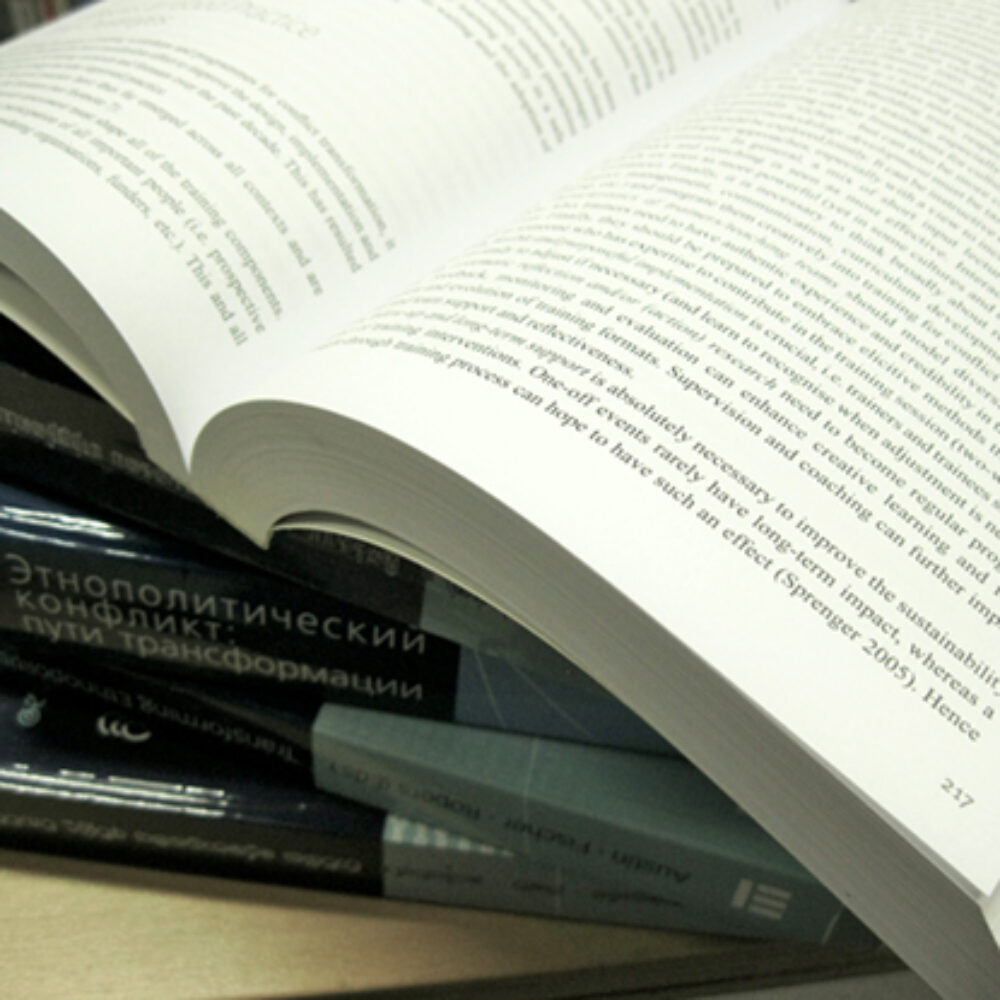
Berghof Handbook for Conflict Transformation
The Berghof Handbook for Conflict Transformation offers a continuously updated online publication platform for both academics and practitioners to review the state of the art, discuss new ideas, and exchange experiences in the field of conflict transformation.
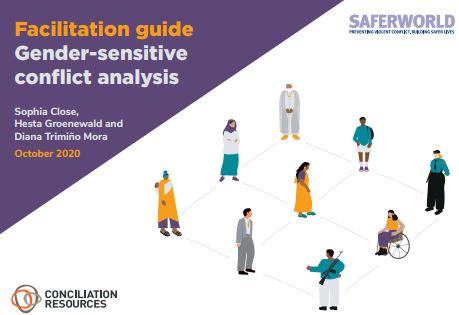
Gender-Sensitive Conflict Analysis Facilitator Guide
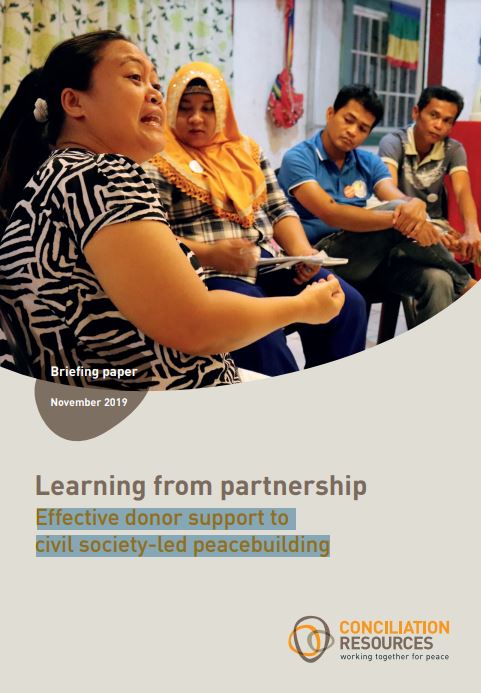
Learning from Partnership: Effective Donor Support to Civil Society-led Peacebuilding
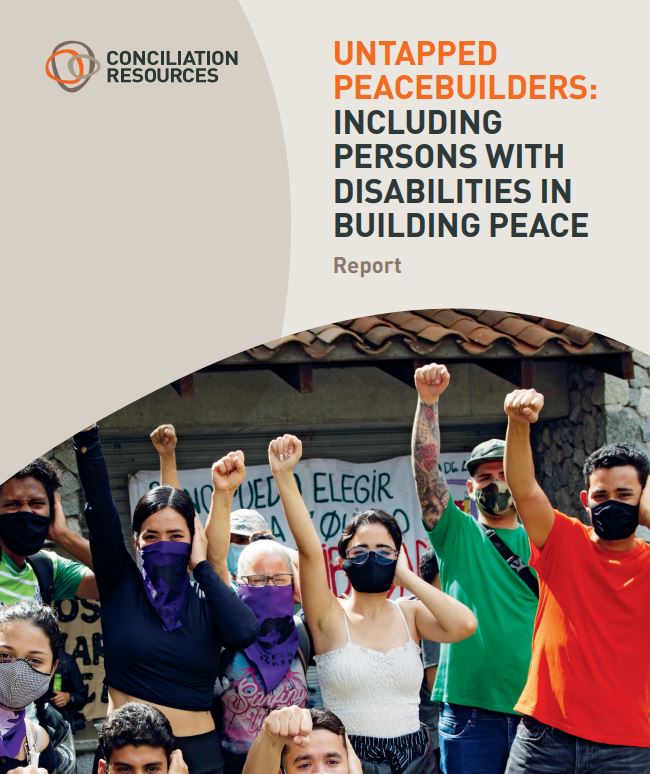
Untapped peacebuilders: Including persons with disabilities in building peace
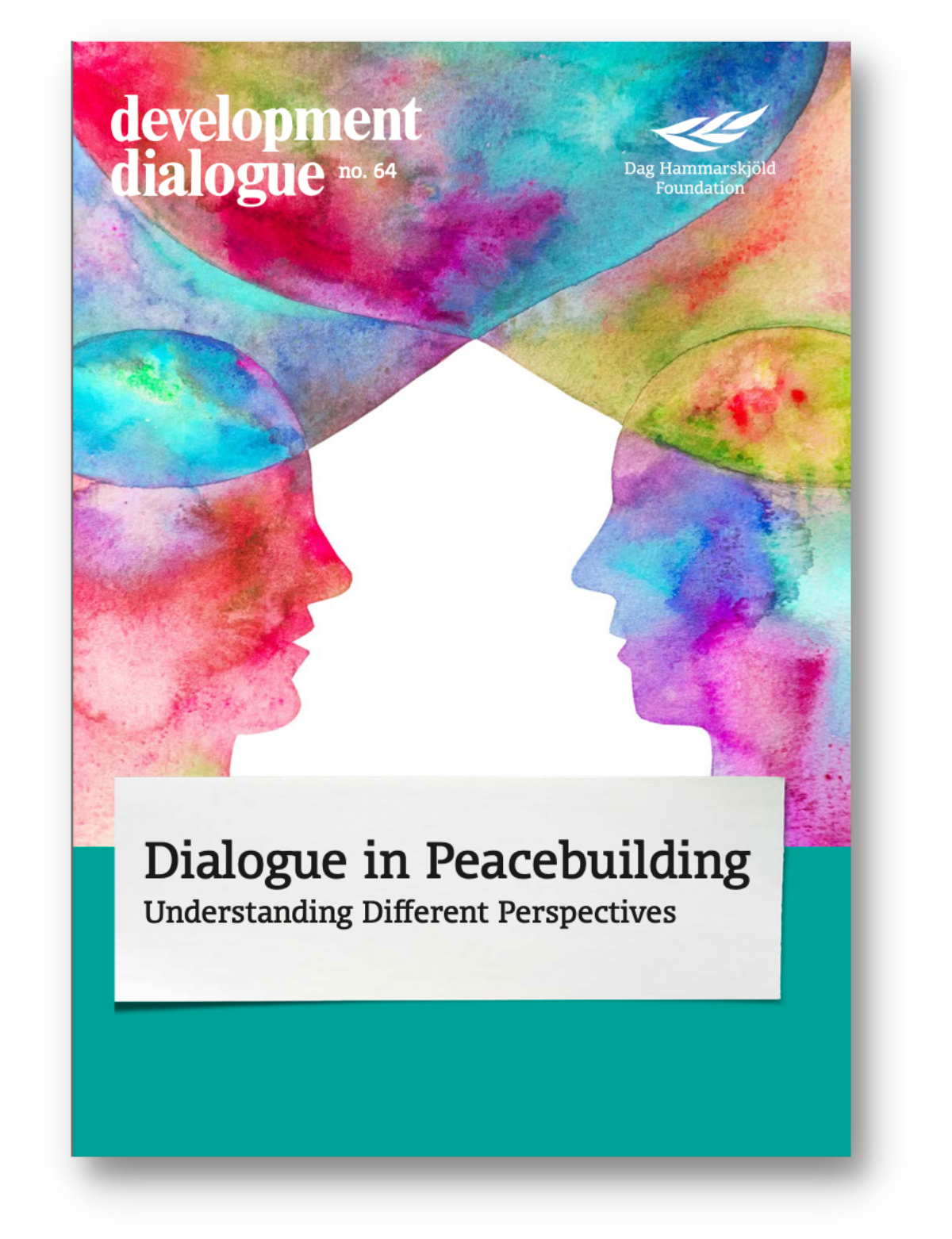
Dialogue in Peacebuilding
While far from new, it is only recently that dialogue has become recognized as a fundamental peacebuilding action, an essential complement to mediation in armed conflicts, and a prioritized method in reconciliation efforts and for building national unity. This issue of Development Dialogue aims to deepen understanding and awareness of dialogue as a critical aspect of and tool for peacebuilding.
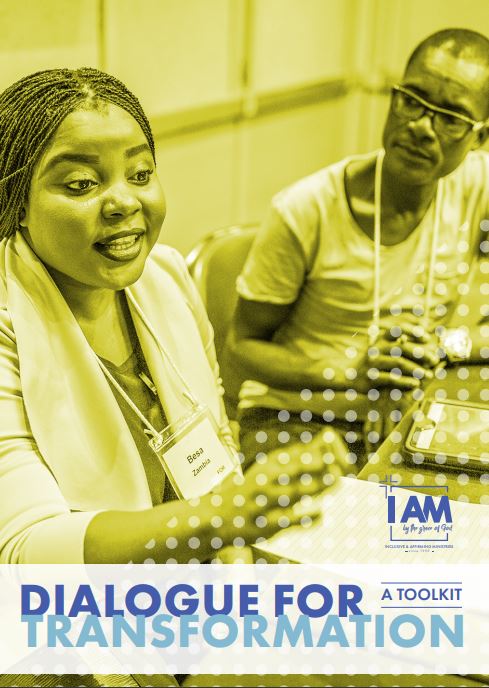
Dialogue for Transformation – A Toolkit
Dialogue transpires between people and should be facilitated to spread over a few days or weeks. Facilitators are process guides that make complex challenges into smaller digestible parts for groups to engage with. This toolkit offers content, though aware, that people bring their own embodied experiences of dialogue into spaces. The facilitator and groups, will most probably, constantly collaborate to make the content in this toolkit contextual. Every station is accompanied by an activity to stimulate conversation and guide the process to recognize and celebrate diversity.
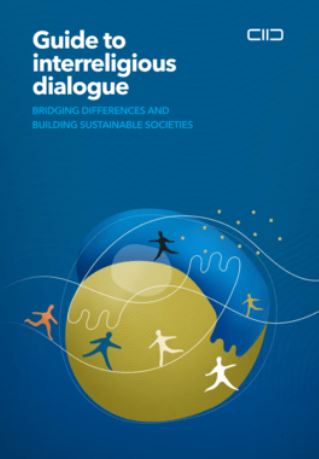
Guide to Interreligious Dialogue: Bridging Differences and Building Sustainable Societies
The Guide to Interreligious Dialogue aims to illuminate the uses, methods, and benefits of interreligious dialogue in a general and accessible way. This guide encourages readers – from absolute beginners to experienced dialogue practitioners – to reach out to their communities to initiate cooperation across religious, cultural, and institutional boundaries.
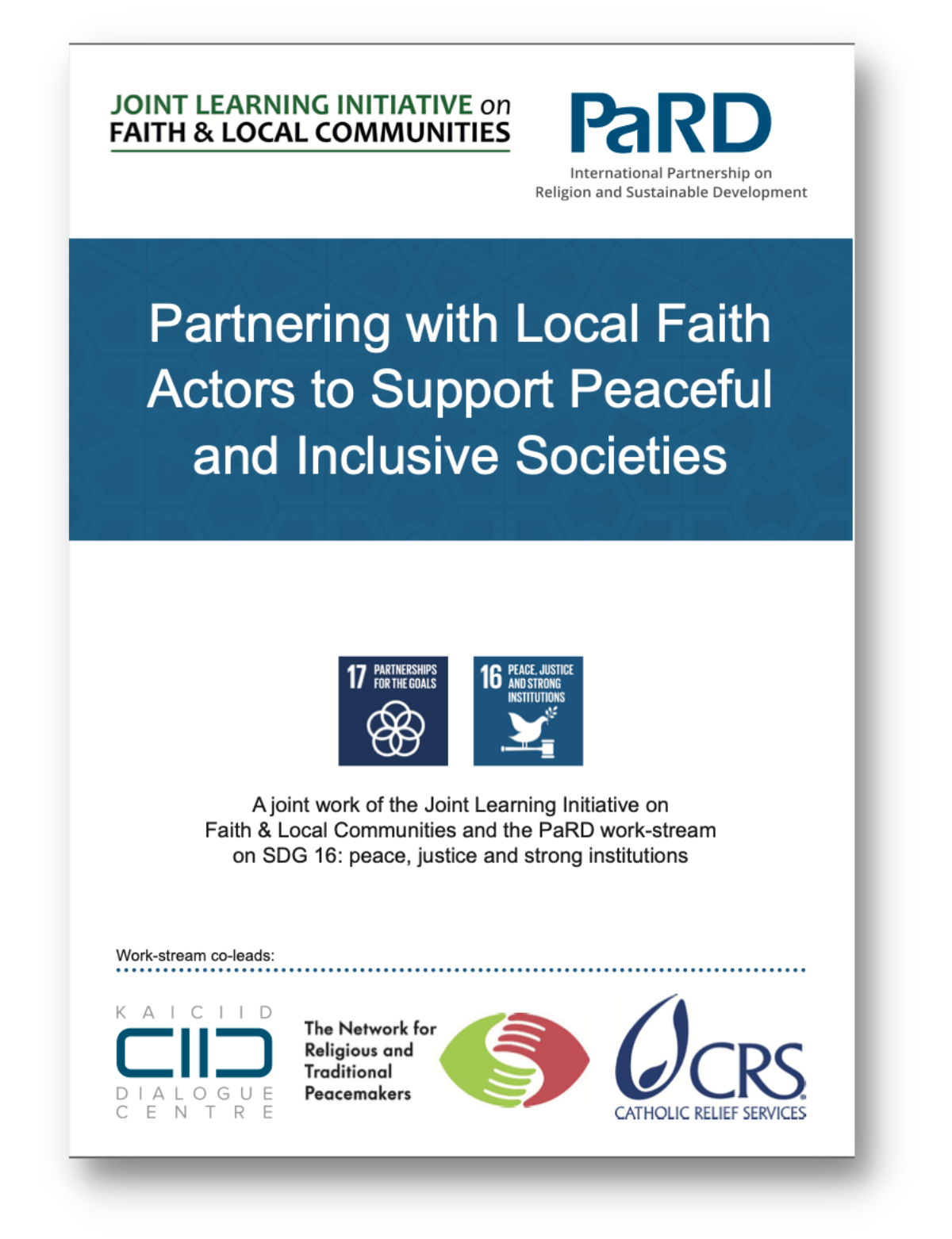
Partnering with Local Faith Actors to Support Peaceful and Inclusive Societies
International Partnership for Religion and Sustainable Development
This study, therefore, seeks to distill learning about the roles played by local faith actors in facilitating, leading, and advocating for peaceful and inclusive societies and to provide evidence-based recommendations to guide engagement and partnerships between LFAs and international actors (non-governmental organizations, bilateral governments, and multilateral institutions).
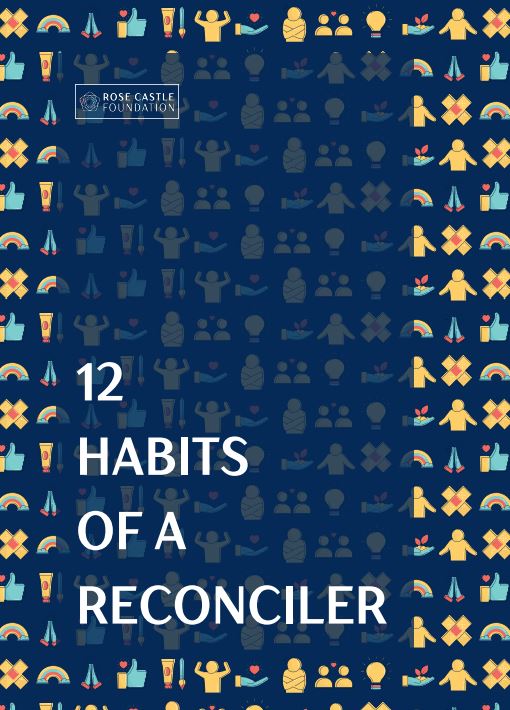
12 Habits of a Reconciler
Based on decades of experience observing reconciling leadership in situations of conflict, the 12 Habits of a Reconciler allow you to examine and strengthen your heart for reconciliation, and build resilience as a future leader in the midst of change, chaos, and conflict.
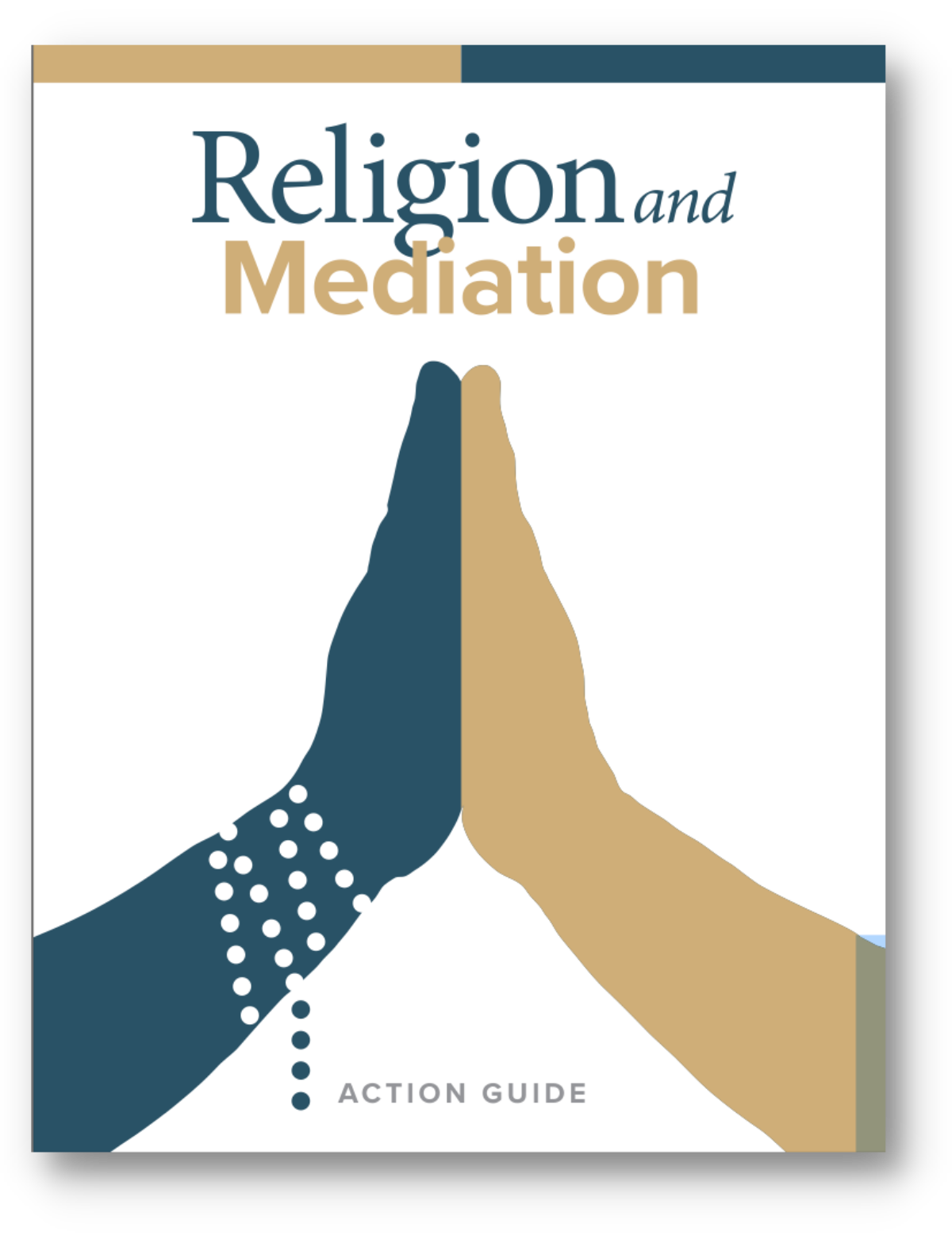
Religious Peacebuilding Action Guides
United States Institute of Peace has developed a series of Action Guides focused on religion and conflict analysis, mediation, reconciliation, and gender-inclusive religious peacebuilding in collaboration with the Network for Religious and Traditional Peacemakers and the Salam Institute for Peace and Justice. These Action Guides provide a practical overview of the religious peacebuilding field and the role religion plays in driving both conflict and peace, examples of how religious actors and institutions have contributed to the prevention and resolution of conflict, and considerations for how best to engage the religious sector in peacebuilding.
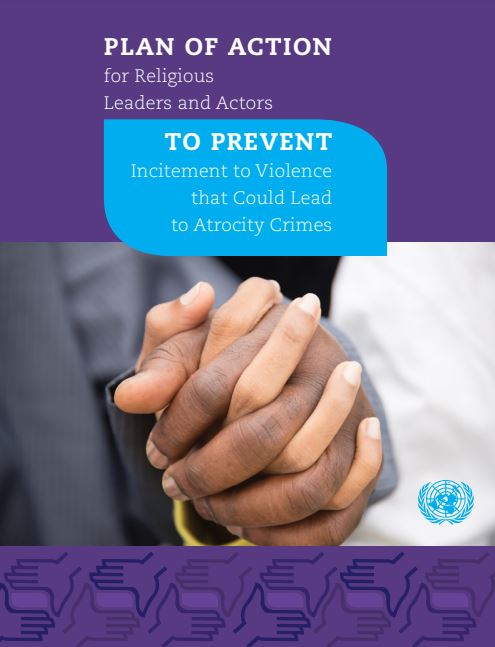
Plan of Action for Religious Leaders and Actors to Prevent Incitement to Violence that Could Lead to Atrocity Crimes
Developed alongside religious actors, the Plan of Action is intended to be a programmatic tool. It aims at informing and advising the work of religious leaders and actors, as well as other relevant players, and providing options and recommendations for ways in which they can contribute to preventing incitement to violence.
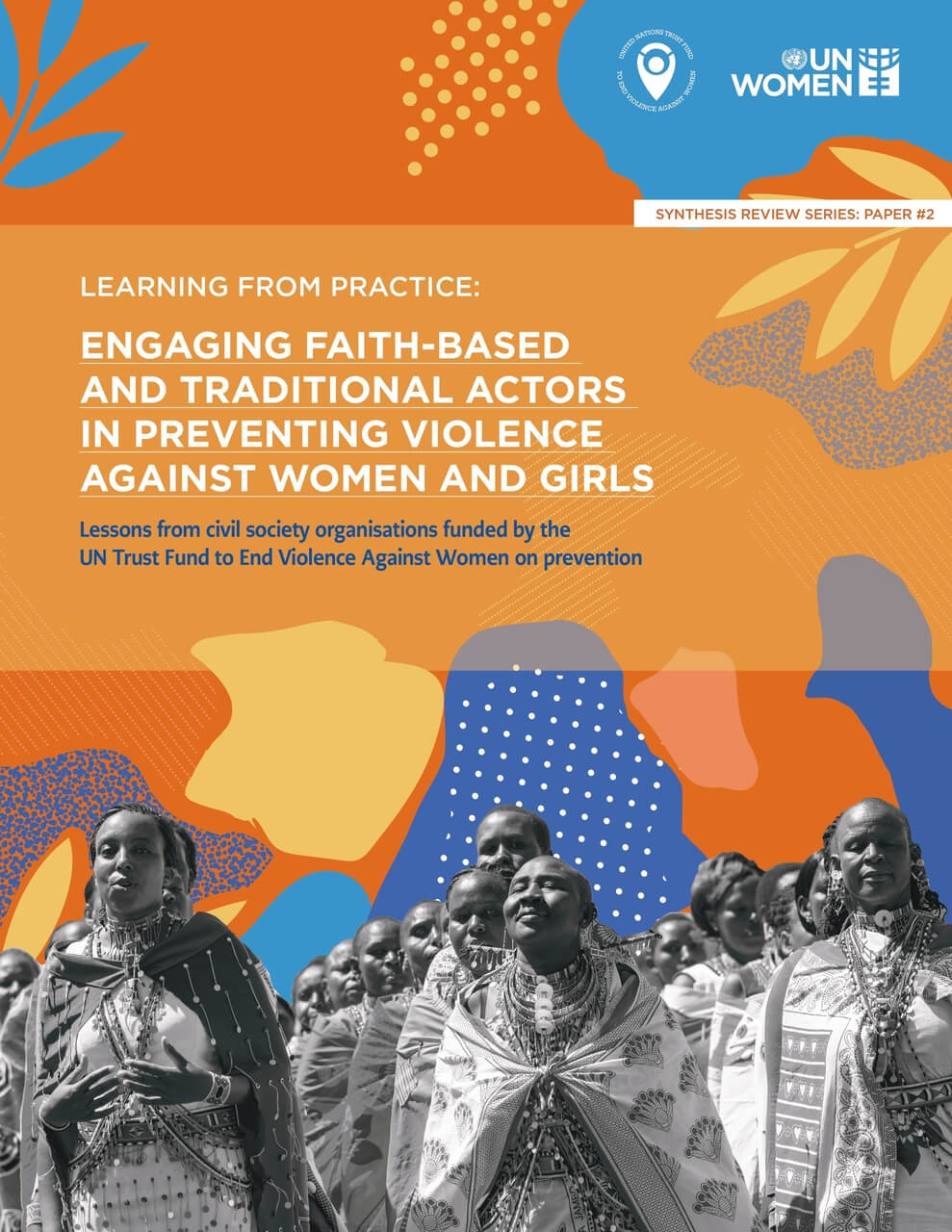
Learning from Practice: Engaging Faith-Based and Traditional Actors in Preventing Violence Against Women and Girls
This synthesis review explores how to engage faith-based and traditional actors by drawing on the experiences of 10 civil society organizations implementing projects to prevent violence against women and girls in different countries and contexts. It showcases the unique contributions of different types and sizes of organizations, from small locally based youth groups to large international human rights organizations.
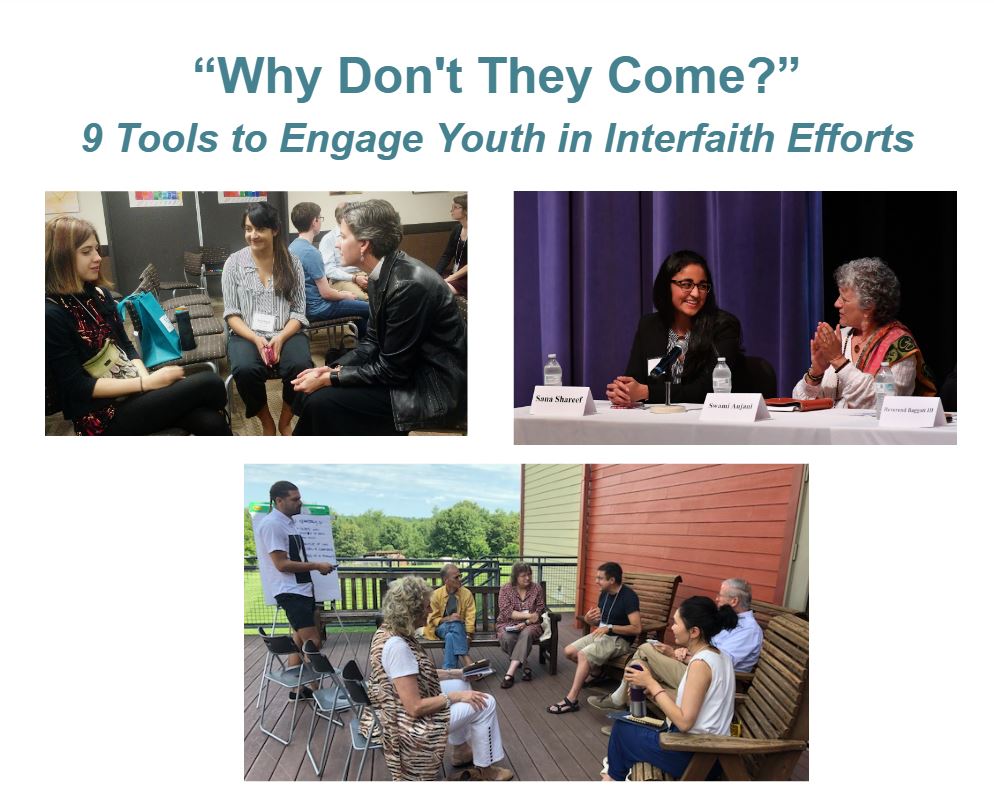
Tools to Engage Youth in Interfaith Efforts
While engaging young adults may seem like a mystery, it’s actually not. Experts shared, from their personal experiences, methods and strategies for engaging and supporting young adults in interfaith work and leadership. Read more.

Toolkit for Meaningful Youth Participation
This Toolkit has been designed for people of all ages who would like to better understand some of the challenges of youth inclusion and discover practical steps to create more meaningful relationships across generations. The intention is for this Toolkit to be a living document, which energizes the conversations and learnings around how we can do better at including the voices, experiences and skills of young people in our work for peace and justice across the world.
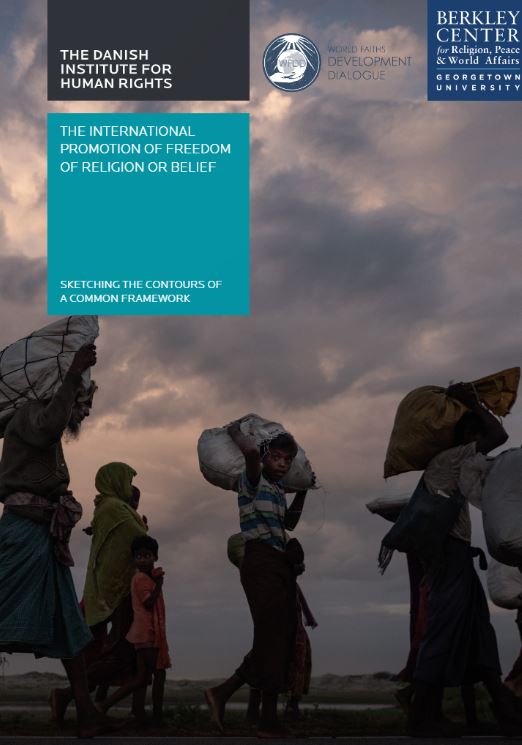
The International Promotion of Freedom of Religion or Belief: Sketching the Contours of a Common Framework
The Network for Religious and Traditional Peacemakers has launched its strategy for 2020-2025. The strategy addresses all elements of the Network’s activities, including its structure, mission, approach, priorities, areas of concentration, and guiding principles. The strategy also reaffirms the Network’s purpose: to assist religious and traditional peacemakers to forge mutually supportive connections between them and others who have responsibility for building peace, and preventing and ending conflicts.
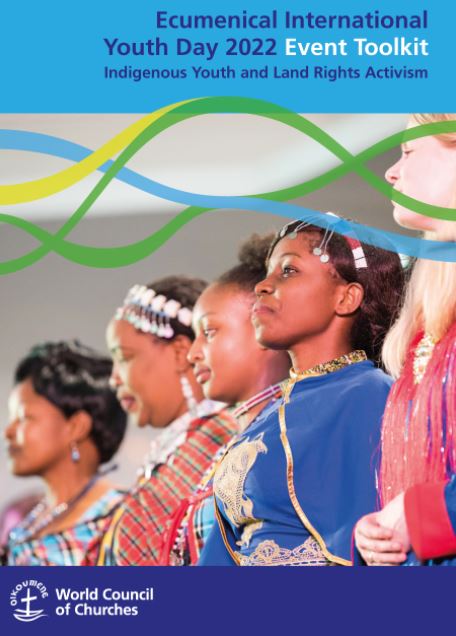
Ecumenical International Youth Day 2022 Event Toolkit
The theme for the fourth International Youth Day commemoration and toolkit, Indigenous Peoples and Land Rights Activism, arose out of several recommendations from young people within and outside WCC networks as one of the pressing issues that young people would like to explore. This toolkit provides background information, resources and guidelines for advocacy by young people.
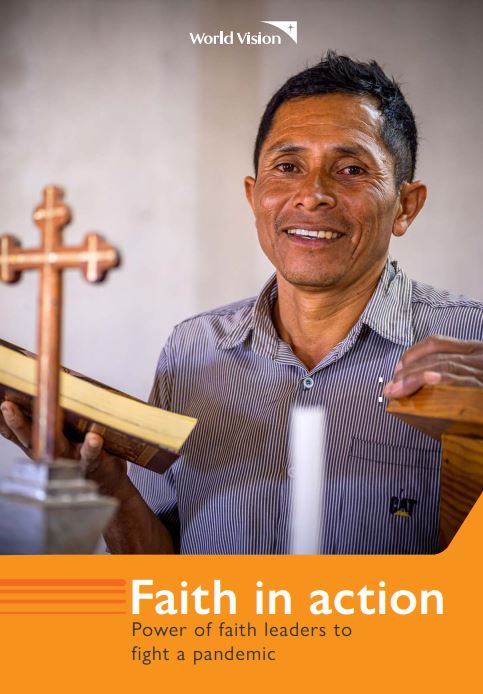
Faith in Action: Power of Faith Leaders to Fight a Pandemic
This report outlines the unique and critical role that faith actors are already playing, shares evidence and learning from past responses, and makes key recommendations on the role they must continue to play as we enter the vaccine phase of the response.

